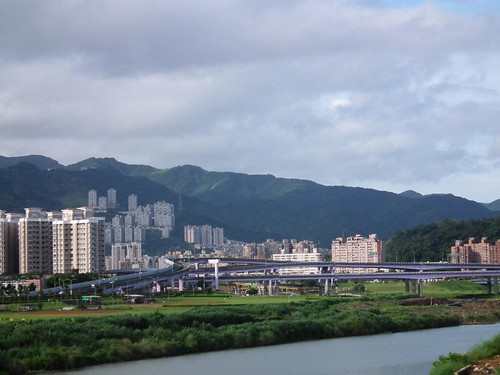Longtime Taiwan watcher Denny Roy has a piece in The National Interest on the coming collision between China and the US over Taiwan. While his central point -- that we are headed for war out here over Taiwan or whatever -- is spot on, the lead up to it is fraught with strange errors. For example:
For several years, some Chinese analysts have worried that Taiwan intended to take advantage of the generous economic terms offered by the People’s Republic of China (PRC) while putting off political negotiations indefinitely. Their skepticism was justified. Economic integration and increased movement of people across the Strait will not necessarily lead to political integration. Taiwanese people may not prioritize an improved material standard of living over maintaining their civil liberties. Even if the sole concern is economic benefit, Taiwan arguably has an interest in delaying unification so as to wait for a point in time where China takes an economic loss and Taiwan profits disproportionately from their bilateral trade. Chinese magnanimity would likely decline after unification."generous economic terms". ROFL. Taiwan has been screwed by China's ruthless attempts to poach its technology, steal its industries, marginalize it in international trade negotiations, and hire away its best workers. The trade deals are meant to facilitate this hollowing out of Taiwan, because the foundation of Taiwan's independence is an independent economy. They do not offer generous terms, one reason that the service pact was so decisively rejected by the public (English analysis). Thus, this dichotomy between "standard of living" and "civil liberties" is completely false, because closeness to China has not fostered a higher standard of living in Taiwan. Instead, it has brought lower wages, low quality service jobs, stagnating incomes, and reduced living standards, not to mention damage to the island's media environment and democratic liberties.
Hence, the way that Roy has formulated this paragraph is completely bass-ackward. It should acknowledge that the interaction with China has brought wealth only to a few large businessmen with close China connections, and has worsened living quality on the island in every way. In this way it has increased desire for independence. Not mentioned here is the way in which Taiwanese go to China and become even more independence-oriented, but perhaps it should be...
Further down Roy scribes:
The likelihood of Taiwan voluntarily choosing unification with China is waning. Opinion polls show that Taiwan’s sense of a separate national identity from mainland China is increasing. While a great majority have long favored the status quo of de facto independence over immediate unification, a majority now oppose even eventual unification.This is a more subtle misrepresentation. Roy is too honest an analyst to give the KMT version of the status quo preference, in which the status quo is presented as opposed to independence. Instead, he correctly identifies the status quo as preferred precisely because it is a weak form of independence. But "a majority now oppose eventual" annexation is plainly false -- annexation to China has always been opposed by the majority in credible polls. It is not something that has become true in the "now." All polls show the same thing -- Taiwanese identify as Taiwanese when forced to choose between Chinese and Taiwanese as identities, and a substantial majority would prefer independence. Annexation to China has little support, and its been that way for years. For example, check out this MAC poll from 2000. The government divides up the numbers to make it difficult to see, but once you do the math, support for annexation is 21%. Not a majority. There never was...
The thing that has changed is not the Taiwanese, who never supported annexation to China. Rather, it is the military calculus in the China-Taiwan-US triangle, as Roy notes. China is now much stronger than it was a decade ago. At some point soon some policy entrepreneur within the Chinese government is going to acquire the authority and position to make a convincing case that China can now defeat the US and Japan combined (the actual military numbers matter only to the extent that some domestic political calculus makes use of them) and then crush the democracy movement on Taiwan. As Hong Kong shows, the second part will in its own way be just as difficult as the first...
__________________
Daily Links:
- Global Voices: Were the Taiwanese media too quick to deem the dead pilots heroes?
- Glenn Smith with an interview of a local activist in The Ecologist about the illegal, disastrous Miramar Resort in Taitung. Like so many, she became an activist when the county stole her house and land and gave it to the big company.
- Bruce Jacobs at CPI: Taiwan-Japan relations in historical perspective
- James Davidson, author of the classic work The Island of Formosa Past and Present, revisited Formosa with a Rotary club trip years later. A 1932 Rotarian has his wife's account of the trip and of his service in Formosa as a correspondent. With pictures.
- Chinese workers a growing threat to Taiwan. That is why the Ma Administration is struggling to bring them in.
- Taiwan Communique #149 now online
- WantWant editorial on the four month interregnum between the election and the new president swearing in.
- Another interesting WantWant editorial on the KMT under Eric Chu.
[Taiwan] Don't miss the comments below! And check out my blog and its sidebars for events, links to previous posts and picture posts, and scores of links to other Taiwan blogs and forums!


